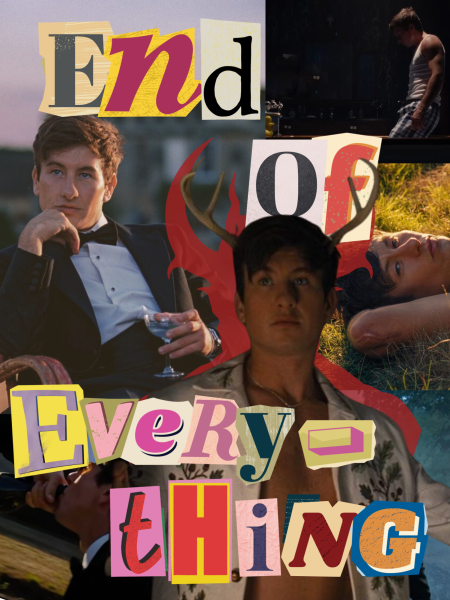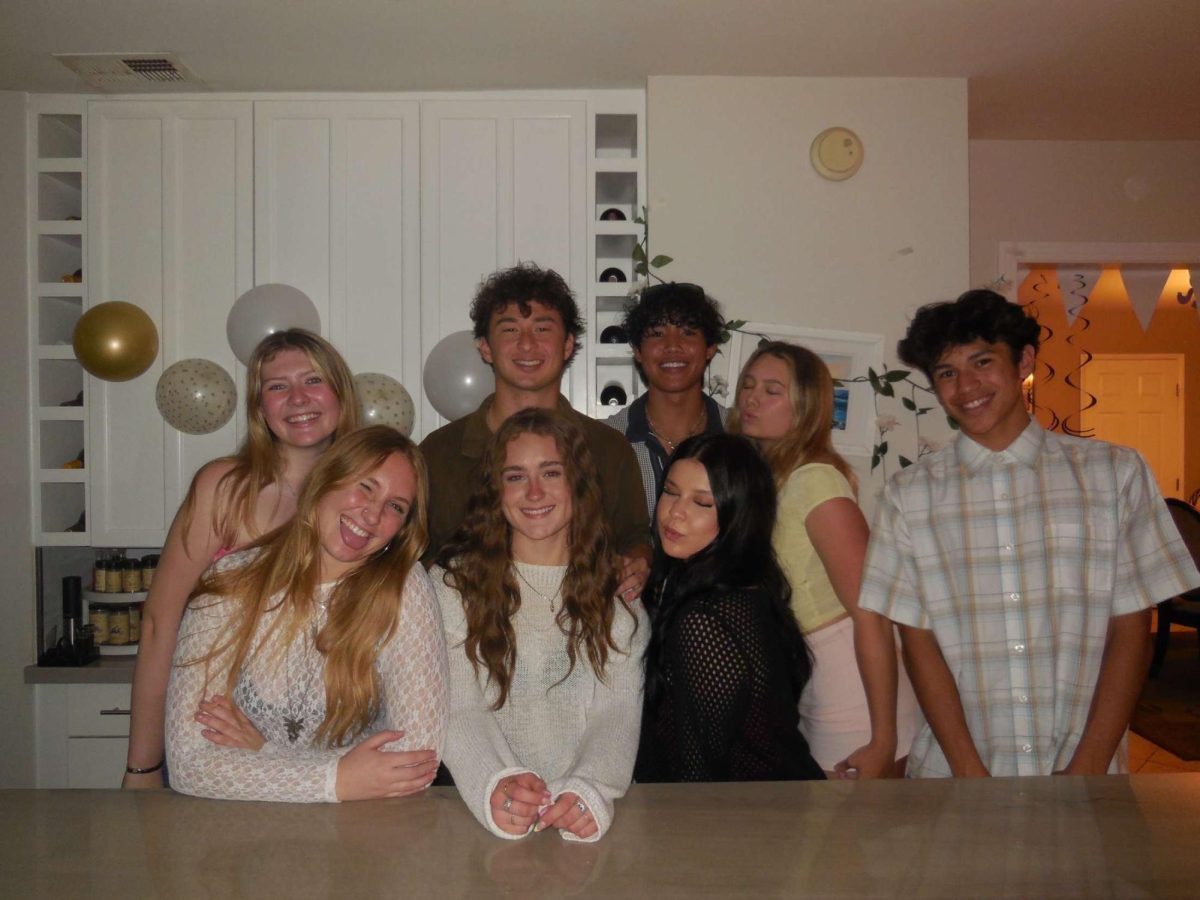Terrifically hilarious and uniquely egregious, “Saltburn” is just what the doctor ordered to revitalize a dying genre of weird in the film industry.
Shot on 35mm film with an aspect ratio of 1.33:1 (meaning the footage looks like a square and doesn’t take up the whole screen), “Saltburn” is beautiful. Set in 2006, the familiarity of the oversaturated colors and grainy footage allows the audience to revel in a time lost to us forever. Supplemented by hyper-romanticized shots of Felix Catton (played by Jacob Elordi) sprawled out on the lawn, “Saltburn” makes even the most horrendous acts look hazily idealistic—like some kind of twisted teenage dream.

The setting isn’t the only thing that looks good in the movie. “Saltburn” is filled to the brim with an outstanding cast, including Barry Keoghan, Jacob Elordi, Archie Madekwe, and Rosamund Pike. Keoghan (as Oxford student Oliver Quick) is delightfully inconspicuous while playing a scholarship boy enamored by Elordi’s Felix. Among Felix’s posse, there is also Archie Madekwe as the American student and cousin, Farleigh. While Madekwe was a stand-out performance, he acted less like a teenager from 2006, and more like your average TikTok-er of today. It wouldn’t be surprising if the word “slay” was in his vocabulary.

Felix’s family is also composed of extraordinary actors. Rosamund Pike as the mother, Elsbeth Catton, is one of the funniest characters and has the honor of telling the best joke in the movie—referencing the British classic “Common People,” by Pulp. Richard E. Grant, as Sir James, the father, perfectly balances hilarious aloofness and heartbreaking emotions, and Alison Oliver, as the sister Venetia, gives an absolutely heartbreaking monologue, all from a bathtub. Adding onto the members of the household and fueling the wealthy family’s further detachment from reality is Carey Mulligan as Pamela, an absolute wildcard dressed not dissimilarly to Lewis Carrol’s Queen of Hearts.
However, when it comes to class, “Saltburn” circles the drain but never quite gets there. It suggests many meanings but fails to commit to any particular statement. For instance, the actors do such a great job at delivering lines that make the audience understand how detached the upper class is, but the story itself only barely scratches the surface of true detail. Additionally, Oliver’s motivations are unclear and muddy; everything he does is definitely shown, but there’s no explanation or exploration as to why he does it. But, combined with how important the visuals and shock value are to “Saltburn,” there’s a question if the film can truly fail as a class critique if it was never intended to be one in the first place.

If there’s one thing “Saltburn” has, it’s many questionable things in quick succession. The film is not for the faint-hearted. In fact, it’s incredibly disturbing and at times feels borderline illegal. Leading this charge into the taboo is Keoghan, with a performance that will set your teeth on edge, but is stunning in every sense of the word, leaving audiences firmly in their seats, mouths agape, well after the credits roll through. To put it bluntly, there are some horrific scenes in this movie—but they are done in such a way that without them, “Saltburn” would be nowhere near as entertaining. It’s a gorgeous film, thematically grounded in grime and filth, taking obsession and desire to levels not typically seen in mainstream releases.








